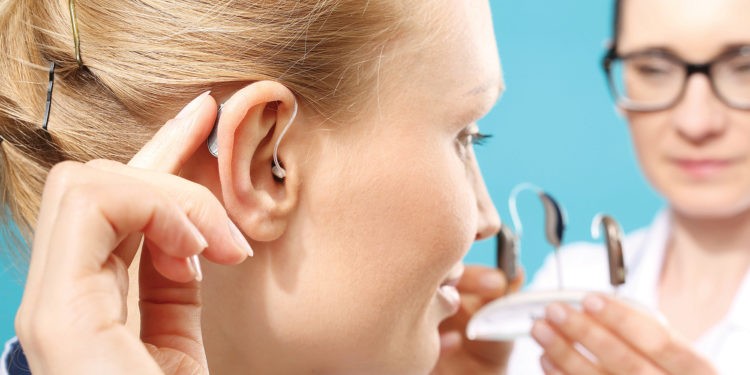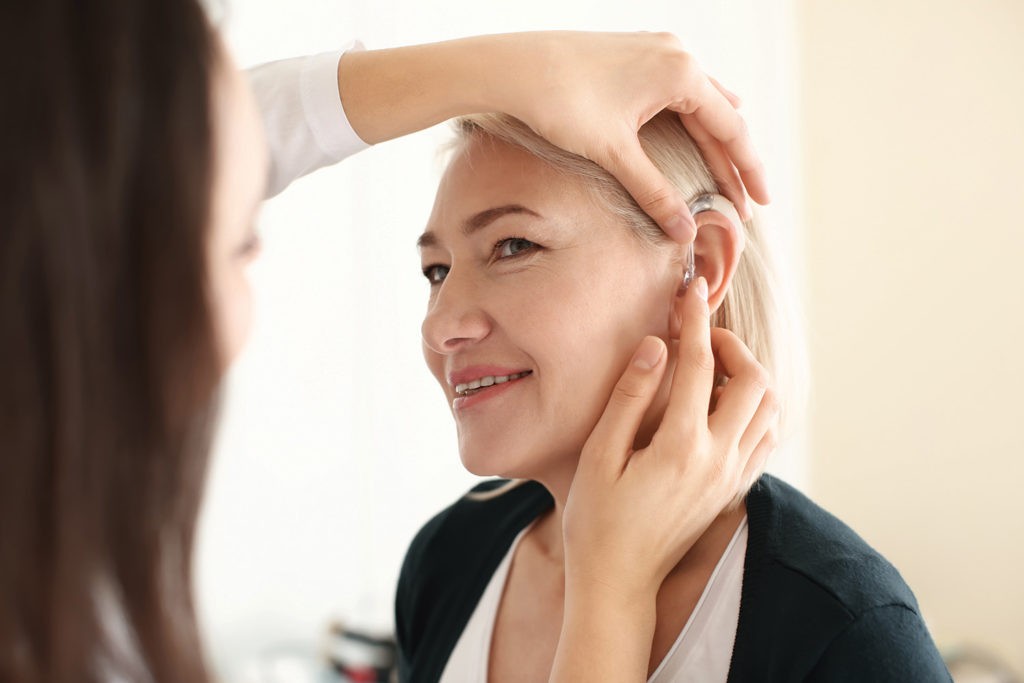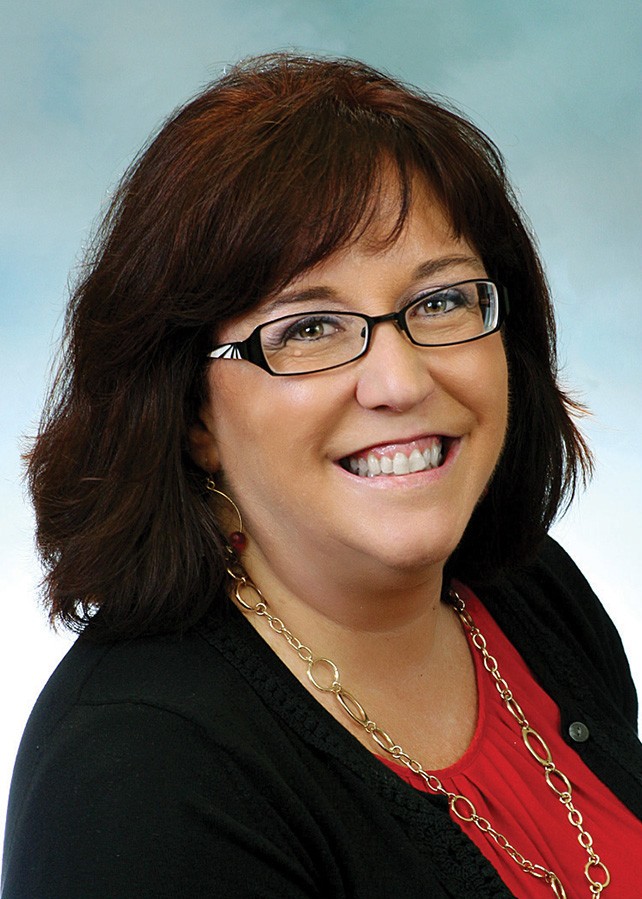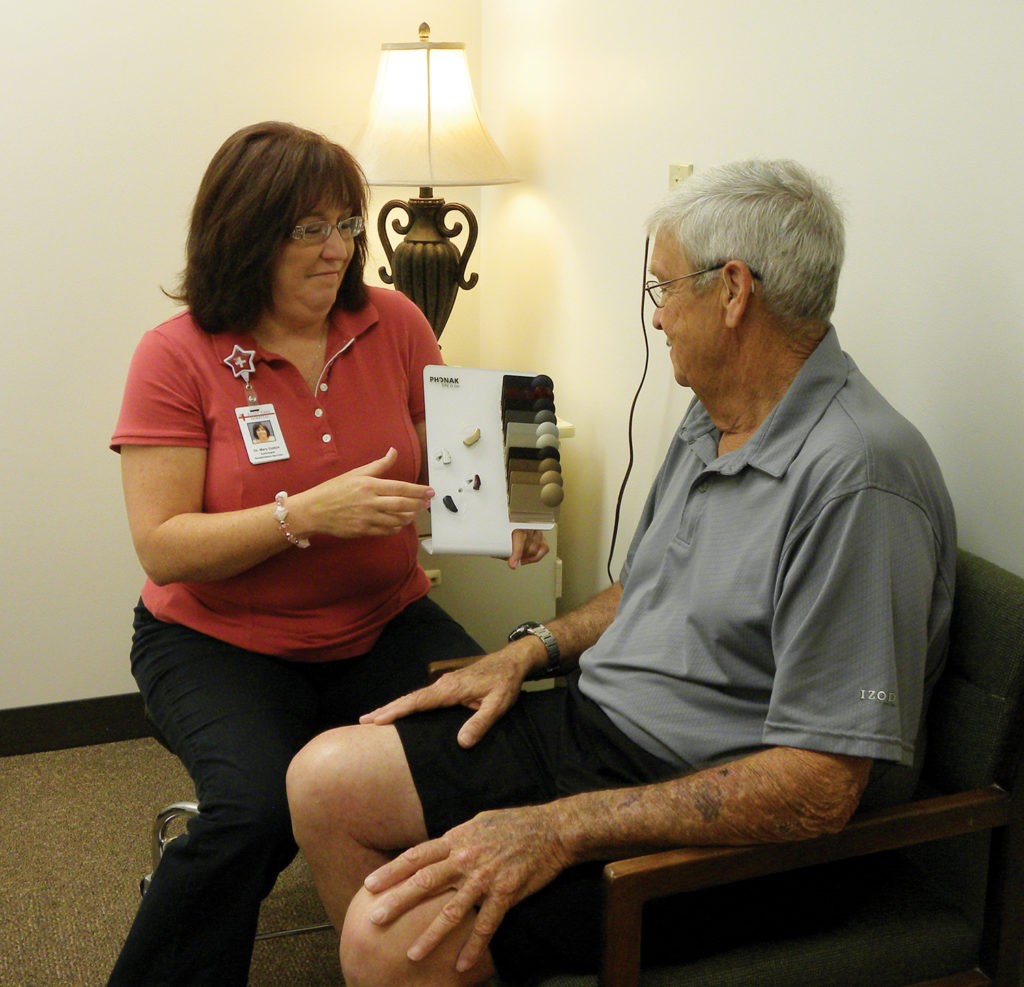Turn Up the Volume on Understanding Hearing Loss

A loss of hearing doesn’t just affect the individual; it also has a tremendous impact on the family as a whole.
Story by Ann Butenas | Photos courtesy of Providence Medical Center
It’s been expressed that the most important thing in communication is hearing what isn’t said, but for those who suffer from hearing loss, communication can sometimes be an insurmountable challenge, as well as a continual source of frustration. Even the slightest loss of hearing can create a variety of lifestyle issues.
Why is hearing important?
While you may not always be in tune with everything you hear as you go about your day, there are myriad of sounds that surround us from all angles: people talking, phones ringing, music playing, and birds chirping. Collectively, these sounds are part of life’s grand symphony, and while at times sound can be annoying (“I’m trying to sleep!” or “Shhh…the movie just started.”), it is an integral part of our senses. Without it, we lose contact with those we love and with the world around us. Hearing empowers us. It gives us the ability to work, communicate and socialize. It is a way to keep us connected to all that is around us and also keeps us safe by warning us of impending danger.

Living with hearing loss.
For those of us who have never dealt with partial or complete hearing loss, we may sometimes take this treasured sense for granted. Sure, we may miss a few words while watching a movie or speaking with someone over the phone, but we probably don’t think much about it.
However, for those who suffer from hearing loss, the world takes on a new identity. Following conversations in a crowded place or simply hearing the phone or doorbell ring can become an important issue. Along with the inability to hear certain sounds, emotions begin to come into play. Individuals with hearing loss can experience frustration, anxiety, sadness and loneliness. Sometimes just trying to focus or concentrate on what is being said can leave one feeling drained and exhausted. For people struggling with hearing loss, this can lead to feelings of depression and isolation.
Hearing loss doesn’t just effect the elderly.
Most people at some point in their lives will sustain some sort of hearing loss. For some people, it may not be noticeable, yet for others, it can significantly impact their world. Hearing loss is usually attributed to genetic and hereditary issues as well as lifestyle indicators. Further, as we age, the nerve endings in our ears begin to die, and as a result, we are unable to hear the higher-pitched sounds that our younger counterparts can hear.

“In the past, this was primarily an older person issue,” noted Mary Dutton, A.uD., Audiologist with Providence Medical Center and Saint John Hospital, who explained that while some cases are hereditary in nature, other causes of hearing loss can be noise-induced. As our society becomes increasingly louder – and as so many people use ear buds to listen to their various audio devices – hearing issues are becoming more prevalent across the entire age spectrum.
“While those over the age of 65 do have more issues with their hearing then younger people, the younger generation is more attune to their bodies and aware of what’s happening to them,” indicated Dutton. “As a result, more younger people will notice a change in their hearing and get it checked.”
A quality of life issue.
“Hearing loss is different for everyone,” noted Dutton. “Two people can have the same amount of loss, but one may be bothered by it more than the other. That is why I refer to this as a quality of life issue as opposed to just a hearing issue.”
One of the first indicators of one’s hearing might be declining is having to turn the television volume up.
“If someone points out to you that the TV volume is up loud, that might be a warning sign,” said Dutton. “Also, if you have trouble with background noise. If you can hear someone speaking but not necessarily understand what they are saying in a noisy environment, that can be an indicator of hearing loss as well.”
Can hearing loss be slowed down or potentially reversed?
There are three types of hearing loss: sensorineural, conductive and mixed hearing. While conductive hearing loss is often correctable, sensorineural loss, the most common form, can usually only be treated through amplification aids, such as hearing aids, assisted listening devices or cochlear implants. Mixed hearing loss occurs through a combination of sensorineural and conductive hearing loss.
Sensorineural loss happens after inner ear damage and is the type of loss that can rarely be reversed through medical or surgical procedures. However, if hearing loss is the result of issues within the ear drum, middle ear or ear canal, according to Dutton, it can be treated. Examples of conductive hearing loss can include fluid in the ear, ear infection, hole in the ear drum, excessive ear wax, an object stuck in the outer ear or a benign tumor. Depending on the case, conductive hearing loss may be temporary or permanent.
Do I need a hearing aid?
This is conversation to have with an audiologist, and, again, all boils down to a quality of life issue.
“If a person has a severe loss of hearing across all frequencies, then, yes, a hearing aid is advisable,” expressed Dutton. “Otherwise, you will be hit by a bus because you won’t hear it coming.”
Fortunately, hearing aids of today are unlike those of your grandma’s day.
“There are a wide range of hearing aids available at all price points, from simple to more complex,” noted Dutton. “While there are some hearing aids that now pair with smart phones, you don’t necessarily need the most expensive brand.”

What can we do to keep our ears as healthy as possible?
Dutton advised subscribing to a heart healthy diet to keep our ears healthy. While having a good heart is definitely vital to our overall health, it also plays an integral role in the health of our ears.
Dutton explained our hearts our responsible for pumping blood and oxygen throughout our bodies. When someone has cardiovascular disease, such as plaque buildup within the arteries, the heart has to work harder to supply vital nutrients, blood and oxygen throughout the body. As a result, certain body parts do not receive the nutrients they need, and this includes the ears. The tiny hair cells and nerves within the ears need sufficient blood flow in order to pick up the sounds that enable you to hear. Without the necessary blood flow, these cells and nerves can sustain damage, which can lead to hearing loss.
In addition to diet, there are many other ways to minimize damage to your hearing: avoid loud noises, which can include everyday things such as motorcycles, concert speakers and power tools; consider investing in appliances with low noise ratings; limit loud sounds in your life; wear hearing protection, especially if you know you are going to be around loud sounds for more than a few minutes; don’t smoke; and remove earwax properly.
“Don’t shove a Q-tip directly into your ear, as that will only push the wax in further,” indicated Dutton. “Those should only be used to clean around the outer portion of the ear.”
Also, check medications for hearing risks. Some antibiotics, cancer-fighting drugs and even high doses of aspirin can have an adverse effect on your ears. Finally, have your hearing tested, especially if you have close relatives with hearing loss; struggle hearing conversations; are frequently around loud noises; and/or often hear ringing in your ears.
If you or a loved one suspect a hearing loss, it is important to consult with an audiologist such as Dutton in order to obtain a complete investigation as to the cause of the loss, as well as to understand the best treatment options for your needs. If you have a sudden change in hearing that cannot be explained, see your doctor immediately, as it could be a symptom of another medical condition.
For more information on Mary Dutton and the Providence Medical Center, call 913.596.4750. Or visit providencemedicalcenter.com, go to “Additional Services” then to “Audiology.”
Sources: bellman.com, healthyhearing.com and webmd.com






